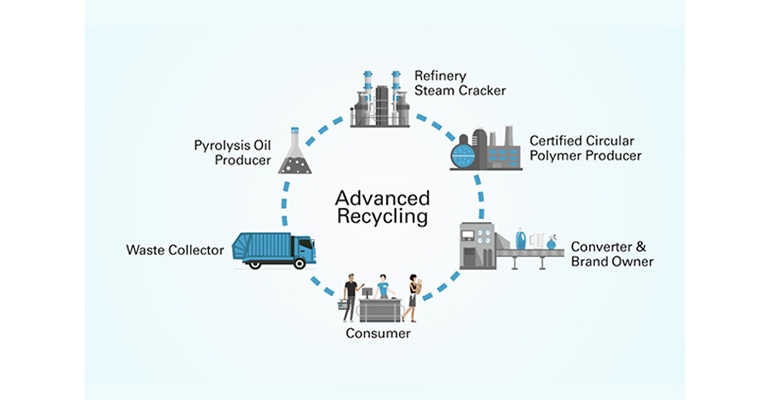BP and Sabic Collaborate on Circular Economy Initiative
At the shared chemical complex in Gelsenkirchen, Germany, BP will convert low-quality mixed and used plastic into pyrolysis oil, which Sabic will use to produce certified circular products.
March 1, 2021

BP and Sabic announced today, March 1, the signature of a new agreement to work together to drive the circular economy in relation to petrochemical activities at the Gelsenkirchen, Germany, chemical complex. Building on a long-established relationship between the two companies at the production site, the collaboration will help to increase production of certified circular products that take used mixed plastics to make feedstock, thereby reducing the amount of fossil resources needed in the petrochemical plants at the site.
Certified circular polymers are part of Sabic’s TruCircle portfolio. The materials are produced via advanced recycling, which converts low-quality mixed and used plastic, otherwise destined for incineration or landfill, into pyrolysis oil. The oil serves as an alternative feedstock to traditional fossil materials. It will be processed at BP’s Gelsenkirchen refining site and then used by Sabic in its polymer plants at the same location to produce certified circular products. The final material has identical properties to virgin-based polymers and allows plastics to be recycled over and over again, with no loss of properties or characteristics. After successful trials in December 2020, polymer production using the alternative feedstock started at the site early this year, said Sabic’s announcement.
“Sabic is committed to helping create a new circular economy where plastic never becomes waste,” said Fahad Al Swailem, Vice President, PE and Sales at Sabic. “Advanced recycling has a crucial role to play in the current recycling mix as it can capture value from plastic waste streams that have traditionally been ignored or discarded. We continue to increase our collaborations with upstream suppliers and downstream customers, and this new initiative with our long-term partner BP takes us one step further to achieving our vision.”
Wolfgang Stückle, Vice President, Refining and Specialties Solutions Europe & Africa at BP, commented: “This is an important milestone in our vision of achieving up to 30% of our ethylene and propylene production from sustainable, recyclable raw materials by 2030. It is a fantastic achievement on the part of the Gelsenkirchen team, after more than a year’s preparation, to set up the new initiative with our partners at Sabic. At the same time, it is what BP’s recently announced Net Zero strategy is all about.”
The certified base chemicals from BP and certified circular polymers from Sabic are recognized through the International Sustainability and Carbon Certification plus (ISCC+) scheme, which certifies content and standards across the value chain from source to end product. ISCC+ certification works on what is known as a “mass balance system,” meaning that for each metric ton of circular feedstock fed into the cracker and substituting fossil-based feedstock, a metric ton of the output can be classified as circular.
About the Author(s)
You May Also Like




